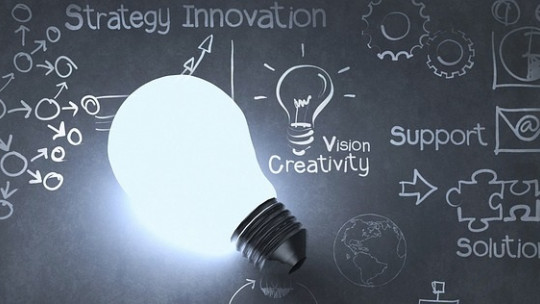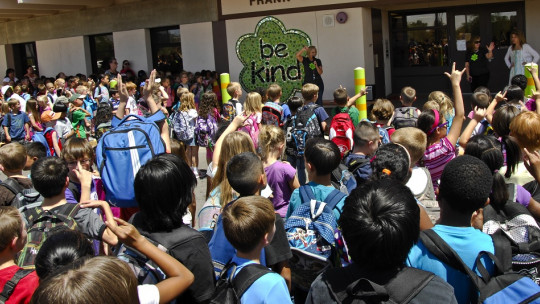
Education is a fundamental pillar in the development of societies and in the individual and social growth of people. Throughout history, many ideas and beliefs have been generated around education that have shaped our conceptions of it, but not all of them are accurate or beneficial.
It is often said that education is a complex and dynamic field that has been plagued by erroneous assumptions and outdated conceptions. These myths have endured in society and have influenced educational practices, preventing the possibility of opting for a more effective approach adapted to the needs of students. It is very important to dismantle these misconceptions and promote education based on scientific evidence.
By understanding and debunking these myths, we can improve the education system and provide students with a more enriching and equitable learning experience for all students. Through scientific evidence, we can challenge these myths or stereotypes that limit society’s beliefs and potential around promoting an education that is not as effective and fair as possible.
Throughout this article, We are going to explore seven popular myths about education, analyzing their negative impact on promoting erroneous beliefs in society and that have a negative impact on the educational process. By demystifying these false conceptions, our intention is to encourage informed and constructive dialogue about how to improve the way we teach, learn, and talk about education in general.
6 myths about education that lead to erroneous beliefs
It is very important to challenge the false beliefs ingrained in our society and question what we take for granted in the field of education. Below, we present six myths about education, along with the explanation of why they are harmful and we must demystify them.
1. The best thing to educate is to be authoritarian and disciplinary
One of the most deeply rooted myths about the educational field is the idea that children learn better when they follow methodologies that are more focused on discipline and teaching authority. This traditional approach implies a teaching model in which those in charge of education assume a dominant role, using control and rigidity techniques in the classroom.
However, scientific evidence shows that This authoritarian approach is not the most beneficial for the learning and integral development of students On the contrary, educational environments based on trust, autonomy and active student participation have been shown to foster more meaningful and positive-focused learning.
When students are given the opportunity to actively participate in their learning process, allowing them to ask questions, explore their doubts and collaborate with their classmates, a more conducive environment is created for the construction of knowledge. The explanation for this is the generation of intrinsic motivation, which is generated by their own enthusiasm and desire, when students feel more curious and have a sense of purpose in learning about what they study.
An authoritarian approach can create an environment of terror and demotivation in which students may feel limited in their creativity and ability to express themselves, which can negatively affect their interest in learning and emotional development. Let us not forget that education is not only about acquiring theoretical knowledge, but also about developing socio-emotional skills, such as collaboration, effective communication and critical thinking.
2. Talent and intelligence are innate, they cannot be developed no matter how much you try to educate at school
There is a widespread belief that talent and intelligence are innate qualities that cannot be developed through effort and practice. This myth has led to the idea that some people are destined for academic and professional success due to a supposed genetic predisposition while others are condemned to be left behind.
The reality is that it has been shown that talent and intelligence are much more flexible and moldable than traditionally believed. Studies related to neuroscience have revealed that the human brain has remarkable plasticity, having the ability to change and adapt to new knowledge throughout life. This refers to growth theory; the idea that skills and abilities can be developed through effort, practice, and continuous learning over time.

Talent and intelligence are not fixed, they can grow and improve throughout our lives. If the ideology that talent and intelligence are innate is maintained, there is a risk of limiting the potential of students and perpetuating inequalities. On the contrary, promoting a growth mindset encourages students to strive, persevere, and seek personal improvement. This also fosters resilience and self-confidence.
3. Formal education is the only valid way to learn
It has long been argued that formal education, the traditional educational system based on classroom teaching, with established teachers and curricula, is the only legitimate and effective way to acquire knowledge and skills. This myth invalidates many other forms of learning that occur beyond the walls and boundaries of school
Learning is not limited to the school environment. There are many informal and unstructured learning opportunities that can be equally valuable and enriching. Experiential learning, self-directed learning, online learning, and learning through social interaction are just a few examples of alternatives to formal, regulated education.
Informal learning, which occurs in everyday situations and practical contexts, also plays a crucial role in the acquisition of knowledge and skills. Through practical experiences, interaction with other people, experimentation and resolution of real problems, significant and lasting learning can be obtained. Everyone has different learning styles and preferences ; There is no one approach that suits all students, so value must be given to the diversity of learning opportunities and options, adapting educational methods to individual needs.
4. Technology in the classroom is a distraction that has no real benefit on learning
There is a belief that technology in the classroom is harmful, since it is considered a distraction and it is thought that it does not provide significant benefits to the learning process. However, there is evidence that indicates the opposite.
The proper integration of technology in education can improve student engagement, foster collaboration, facilitate access to educational resources, and promote digital skills essential for the 21st century. The key is a balanced and thoughtful approach to the use of technology, harnessing its benefits to enhance the educational experience.
5. Exams and grades are the best indicators of academic success
Tests and grades have long been considered the primary indicators of academic success. This narrow focus overlooks a number of important factors that influence learning and a student’s ability to succeed in life.
Traditional grading focuses primarily on a student’s ability to memorize information and regurgitate it on an exam. This does not comprehensively reflect the knowledge, skills and competencies acquired by the student. Besides, It has been shown that test-related anxiety and stress can negatively impact student performance and emotional well-being
It is important to consider a broader and more authentic assessment of learning. Formative assessments, for example, provide continuous feedback and allow students to reflect on their progress and areas for improvement. Consideration should also be given to the development of practical skills, critical thinking, problem solving and the ability to work as a team, which are essential for success in the real world.
Academic success cannot be reduced to a simple grade. It is essential to take a holistic approach that values personal growth, the development of transferable skills and the ability to apply knowledge in real-world situations. This requires broader, more equitable assessment that goes beyond traditional tests and grades.
6. Learning is limited to the classroom and ends after the educational stage
There is a belief that learning is limited to the school environment and that it ends once the educational stage is completed. However, Learning is a continuous process and occurs at all stages of life
Education and educational systems provide a solid foundation, but learning does not stop there. Throughout our lives, we continue to acquire knowledge, skills and experiences through interactions, work, travel and various personal development opportunities. Recognizing the importance of lifelong learning allows us to continue growing, adapting and constantly improving.








